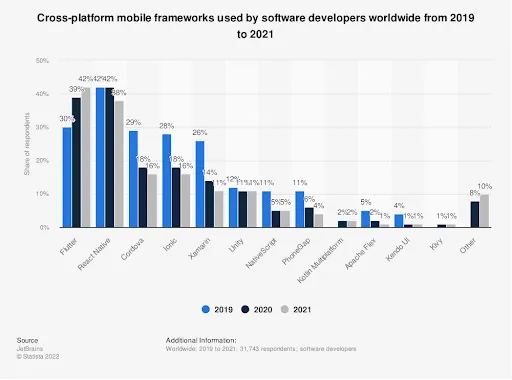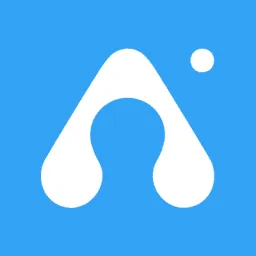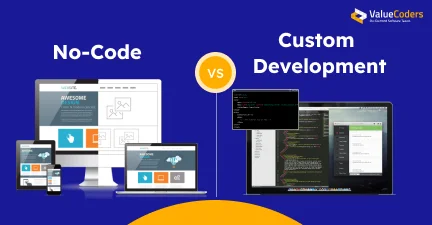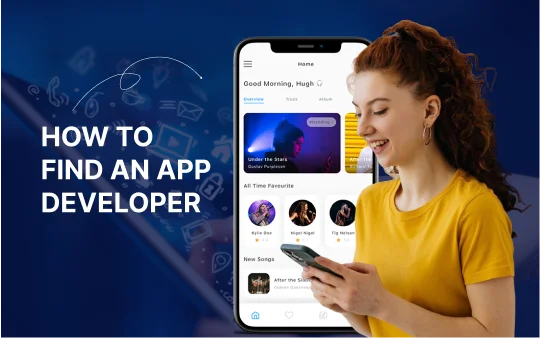Cross-platform app development allows you to reach a wider audience with your app, as it can be used on any device. With so many devices and operating systems out there, it’s crucial to develop apps that can run on multiple platforms.
This is especially important for businesses who want to ensure their app is accessible to as many people as possible.
Many cross-platform app development frameworks are available, so you can choose the one that best suits your needs. Whether you want to develop an app for iOS, Android, or both, there’s a cross-platform solution for you.
Here Are Some Key Stats On Cross-platform App Development
Img src: Google
- Cross-platform app development can save businesses up to 30% on development costs compared to native app development.
- These apps are typically downloaded and used more often than native apps.
- Its users are more engaged and have a higher retention rate than native app users.
- Over 50% of businesses now have at least one cross-platform app in development.
- The average cross-platform app project costs around $270,000.
- The average cross-platform app development team comprises 5-10 people.
As a business owner, you’re always looking for ways to reach more customers and get ahead of your competition. One way to do this is by developing a mobile app.
But what if you want to create an app that can be used on Android and iOS devices? This is where cross-platform app development comes in.
What Is Cross-platform App Development?
Cross-platform app development is creating a single app that can be used on multiple platforms, such as Android, iOS, Windows, and more. This means that you only have to develop one app instead of two (or more) separate apps for each platform.
It has many benefits for businesses
- First, it saves you time and money since you only have to develop one instead of multiple apps.
- Second, it makes it easier to reach your target market since your app will be available on more than one platform.
- Third, cross-platform app development can make your app more reliable since it will be tested on multiple platforms before it is released.
If you’re thinking about developing a cross-platform app for your business, you should keep a few things in mind.
- First, ensure you have the resources and skills necessary to develop an app that can be used on multiple platforms.
- Second, consider the needs of your target market and ensure your app can meet those needs.
- Third, cross-platform app development can be more time-consuming and expensive than developing a single app for one platform, so ensure you have the budget and timeline to accommodate this.
When to Choose Cross-platform App Development For Your App?
Regarding cross-platform app development, there are a few key things to consider. First and foremost, cross-platform app development is more expensive and time-consuming than developing for a single platform.
In addition, cross-platform app development can be more complex, as you have to account for different screen sizes, resolutions, and operating systems. However, cross-platform app development offers a few key advantages.
First and foremost, cross-platform app development allows you to reach a wider audience with your app. In addition, cross-platform app development can make it easier to develop for multiple languages and regions. Finally, cross-platform app development can provide a consistent user experience across devices.
So, when should you choose cross-platform app development for your app? If you’re looking to reach the broadest possible audience with your app, cross-platform development is a great option.
In addition, cross-platform development can be a good choice if you need to support multiple languages and regions. Finally, cross-platform development is a good option if you want to provide a consistent user experience across devices.
Cross-platform Mobile Development vs. Native App Development
The debate between cross-platform mobile and native app development has been around for years. Both approaches have pros and cons, and it depends on your specific needs as a developer or business owner as to which route you should take.
Cross-platform mobile development is creating apps that can be used on multiple platforms, such as iOS, Android, and Windows Phone.
The main advantage of this approach is that it saves you time and money, as you only have to develop the app once instead of creating separate versions for each operating system. However, cross-platform apps can sometimes be less reliable than native apps and may not offer the same level of performance or user experience.
Native app development is creating separate apps for each platform you want to support. The advantage of this approach is that you can tailor the app specifically for each operating system, resulting in a more reliable and user-friendly experience.
However, native app development can be more expensive and time-consuming than cross-platform development, as you have to create separate versions of the app for each platform.
So, which approach is right for you? It depends on your needs and budget. If you want to create an app quickly and don’t mind sacrificing some reliability and performance, then cross-platform mobile development may be the way to go.
However, if you’re willing to invest the time and money into creating a high-quality app, then native app development is the better option.
Also Read – 9 Top-Notch Cross-Platform App Development Companies in India
There are a number of advantages to developing cross-platform apps, including the ability to reach a wider audience, decreased development costs, and increased efficiency.
- It allows you to develop for multiple platforms with a single codebase. This can save you time and money, as you don’t have to maintain separate codebases for each forum.
- It also allows you to reach a wider audience, as your app can be distributed across multiple platforms. This can help you increase your user base and potentially generate more revenue.
- It can also help you improve your apps’ quality, as you can test your code on multiple platforms before release. This can help catch any bugs or errors that might otherwise go unnoticed.
- Cross-platform app development can make it easier to deploy your app to multiple platforms. This can save you time and effort, as you don’t have to worry about building and deploying separate versions of your app for each platform.
- It can also make it easier to keep your app up-to-date, as you can push updates to all platforms simultaneously. This can help ensure that your users always have the latest version of your app and avoid any potential compatibility issues.
- It is not without challenges, but the advantages outweigh the disadvantages for many developers. If you’re looking to save time and money, reach a wider audience, or improve the quality of your apps, cross-platform app development may be the right choice for you.
Disadvantages of Cross-platform App Development
Cross-platform app development may not be the best solution for every project. Here are some disadvantages to consider before deciding if cross-platform app development is suitable for your project:
- Limited functionality: Cross-platform apps often have limited functionality compared to native apps. This can be a big downside if you need your app to do specific tasks or integrate with other systems.
- More expensive: Cross-platform app development is often more costly than native app development since it requires additional resources and expertise.
- Increased complexity: Cross-platform app development can be more complex than native app development since it involves working with multiple platforms and technologies. It can make the development process longer and more complex.
- Less reliable: Cross-platform apps can be less reliable than native apps since they rely on multiple platforms and technologies. It can lead to errors and bugs that are difficult to fix.
- Lower performance: Cross-platform apps often have lower performance than native apps since they need to work across multiple platforms. It can make them slower and more resource-intensive.
All of these factors should be considered before deciding if cross-platform app development is suitable for your project. Weigh the pros and cons carefully to determine if cross-platform app development is the best solution for your needs.
Also read: Top 10 Cross-Platform Frameworks For App Development
Why Choose Flutter For Cross-Platform?
Flutter is an open-source, cross-platform app development framework created by Google. It allows developers to create native apps for both Android and iOS platforms using a single codebase.
There are many reasons why you should consider Flutter for cross-platform app development. Here are some of the key benefits:
- Flutter is fast and responsive. The framework uses Dart, which is a compiled programming language that provides fast performance. Your app will be responsive and smooth, even on older devices.
- Flutter uses the Skia graphics library, which gives it access to low-level graphics features such as animation and gestures. This results in apps that look and feel great to use.
- Flutter is cross-platform. As mentioned, you can use the same codebase to develop apps for both Android and iOS platforms. This saves time and effort as you don’t need to maintain two separate codebases.
- Flutter has great documentation and community support. The documentation is clear and concise, making it easy to develop apps using Flutter. Flutter is also a large and helpful community of developers who are always willing to help beginners.
- Flutter allows you to create beautiful and interactive user interfaces. The framework provides a wide range of Material Design widgets that can be used to create stunning interfaces. You can also easily add animation and interactivity to your app with flutter development services.
As you can see, there are many good reasons to choose Flutter for cross-platform app development. If you’re looking to develop an app that is fast, responsive, and looks great, Flutter is the right choice.
When Choose Xamarin For Cross-platform apps development?
Xamarin should be at the top of your list if you’re looking for cross-platform app development. Here’s why:
- Xamarin is cross-platform, meaning it can be used to develop iOS, Android, and Windows apps. This makes it a great choice if you want to develop an app that will be used on multiple devices.
- Xamarin is easy to use and learn. It’s based on C#, which is a popular and easy-to-learn programming language. This makes it a great choice if you’re new to app development or don’t have much experience with coding.
- Xamarin has a large and active community. This means that plenty of resources are available if you need help developing or coding your app.
- Xamarin is backed by Microsoft. This gives it a lot of credibility and means that it’s here to stay.
- Xamarin apps have a native look and feel. This means they look and feel like they belong on the platform they’re being used on, whether iOS, Android, or Windows.
- Xamarin apps are fast and efficient. They’re able to take advantage of native features and functionality, which makes them perform better than cross-platform apps that use webviews.
- Xamarin is flexible. It can be used to develop both cross-platform and native apps. This makes it a great choice if you’re not sure which route you want to take with your app.
- Xamarin has a low cost of entry. You don’t need to purchase multiple licenses or pay for various development environments. This makes it a more affordable option than other cross-platform development tools.
- Xamarin is constantly improving. The team behind Xamarin is always working on new features and improvements. This means that you can expect the platform to continue getting better over time.
- Xamarin is a good choice for cross-platform app development because it offers all of the benefits of cross-platform development; plus, it’s easy to use, has a low cost of entry, and is constantly improving. Xamarin should be at the top of your list if you’re looking for cross-platform app development.
Also Read: Reasons Why Is Xamarin A Best Pick For Cross-platform
Why Use React For Future Projects?
If you’re looking to develop a cross-platform app, React is a great option. Here are some of the reasons why:
- React is cross-platform by default. This means that you can use React to develop for both iOS and Android platforms without having to make any changes to your code.
- ReactNative uses the same core UI building blocks as regular iOS and Android apps. This makes it a great option if you’re looking to develop an app that looks native on both platforms.
- React is easy to learn and use. The component-based structure of React makes it easy to understand how your app is put together, and the declarative syntax means that you don’t have to write a lot of code to get your app up and running.
- React is fast. The virtual DOM that React uses means that your app will be able to render changes quickly without having to re-render the entire page.
- React is scalable. The modular nature of React means that you can scale your app as you need to without having to rewrite your code from scratch.
So if you’re looking for a cross-platform app development solution that is easy to use, quick to develop, and scalable, React is an excellent option.
Also read: Flutter vs React Native: Which Is The Best
Best Cross-platform App Development Frameworks
Top Cross-Platform App Development Companies
Appventurez
- Founded In: 2018
- Hourly Price: $25 – $49 / hr
- Employees Count: 50 – 249
Appventurez is a leading cross-platform app development company that was established with the motto of delivering end-to-end technology-driven services to all businesses, large and small, and significantly contributing to improving their overall business life cycle.
Key Clients: PWC, Walmart, Discovery, Pepsico, Amaze, Moove
ValueCoders
- Founded In: 2004
- Hourly Price: < $25 / h
- Employees Count: 250 – 999
ValueCoders combines business domain knowledge, proven methodologies, and technology experts with more than 450 qualified software professionals to deliver high-quality solutions that add value to businesses.
Key Clients:Capgemini, SelectSpecs, Estel, Candor, Novea, Grundfos
CloudFlex
- Founded In: 2018
- Hourly Price: $25 – $49 / hr
- Employees Count: 10 – 49
Cloudflex is a company where performance and customer satisfaction, along with the final product quality, are always valued above project documentation.
Key Clients: Yaza, Cyanoguard, Bean
Also Read: Top Flutter App Development Agencies
Conclusion
Cross-platform app development is becoming a more popular option for businesses as they look to create mobile apps. There are several different cross-platform development frameworks, each with its own advantages and disadvantages.
When deciding which framework to use for your app, it is essential to consider the specific needs of your business and project. In my opinion, if you’re looking for a more versatile option that can be used for both Android and iOS apps, then Flutter is probably the better choice.
If you need to develop an app specifically for Android devices, then Xamarin would be a better option. React Native is also becoming increasingly popular as a framework for cross-platform development.
However, when choosing a cross-platform framework for your project, you need to consider your business’s needs and your team’s abilities. You can also outsource your project to a reliable custom app development company like ValueCoders.
The cross-platform apps development team builds highly scalable and robust web & mobile apps by deploying the latest cross-platform app development technologies, including Xamarin, React Native, Flutter, and Ionic. Contact us today!











